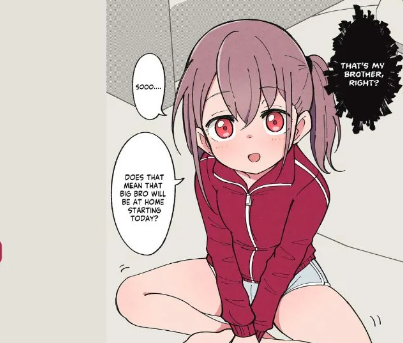Introduction
In the rich mosaic of human language and culture, certain phrases stand out for their ability to encapsulate complex emotions and experiences. One such phrase is “komik hisashiburi ni jikka ni kaettara otouto ga ts shiteta.” To truly grasp its essence, we embark on a journey to explore its roots, cultural significance, and its profound impact on sibling relationships.
Understanding “komik hisashiburi ni jikka ni kaettara otouto ga ts shiteta”
This intriguing phrase hails from Japanese culture, where language often carries deep layers of meaning. Loosely translated, it signifies “when I returned home after a long absence, my younger brother had become taller.” Examining its components provides insight into Japan’s emphasis on familial bonds, growth, and the passage of time.
The Cultural Significance
In Japan, familial ties are revered, each member’s journey symbolizing collective progress. “Komik hisashiburi ni jikka ni kaettara otouto ga ts shiteta” encapsulates the bittersweet realization of change within the family unit, a sentiment resonating across cultures.
Historical Evolution of the Term
To comprehend the full depth of this phrase, we delve into its historical evolution. From traditional customs to societal shifts, understanding how it became woven into Japanese discourse is essential.
The Impact on Sibling Relationships
Sibling dynamics are intricate, influenced by age, shared experiences, and the relentless march of time. This phrase mirrors the universal experience of returning home to find younger siblings changed, marking the perpetual flux of familial relationships.
Common Misconceptions
Like any culturally nuanced expression, “komik hisashiburi ni jikka ni kaettara otouto ga ts shiteta” may suffer from misinterpretation. We address common misconceptions, shedding light on its true essence.
Navigating Cultural Sensitivities
For those unacquainted with Japanese culture, using this phrase might appear daunting. We discuss respectful navigation of cultural sensitivities, appreciating the profound meaning behind these words.
The Role in Modern Society
As societies evolve, so do the meanings of cultural expressions. Explore how this phrase adapts to the modern world, transcending its traditional roots.
Parental Perspectives
Parents shape familial dynamics significantly. Discover how parents perceive and contribute to the sentiment behind this phrase, influencing the family narrative.
Balancing Tradition and Modernity
In a rapidly changing world, finding balance between tradition and modernity is crucial. Uncover how this phrase bridges the gap between past and present.
Celebrating Sibling Bonds
Despite its poignant undertones, this phrase celebrates sibling bonds. Delve into heartwarming stories exemplifying the beauty of familial connections, transcending borders and cultures.
Similar Phrases Across Cultures
Interestingly, many cultures have expressions akin to “komik hisashiburi ni jikka ni kaettara otouto ga ts shiteta.” Explore how different societies encapsulate the universal experience of returning home to changed familial landscapes.
How to Embrace “komik hisashiburi ni jikka ni kaettara otouto ga ts shiteta”
For those intrigued, we offer insights into embracing and incorporating this phrase into one’s understanding of familial relationships.
Real-Life Stories
To breathe life into the narrative, we delve into real-life anecdotes embodying the sentiment behind “komik hisashiburi ni jikka ni kaettara otouto ga ts shiteta,” showcasing the richness of human connections.
Conclusion
In the intricate web of human connection, phrases like “komik hisashiburi ni jikka ni kaettara otouto ga ts shiteta” add layers of depth to our comprehension of familial bonds. As we navigate relationship complexities, this expression serves as a poignant reminder of the beautiful yet inevitable changes shaping our lives.
Frequently Asked Questions
Is “komik hisashiburi ni jikka ni kaettara otouto ga ts shiteta” commonly used in everyday conversation in Japan?
While not a phrase used in everyday conversation, it holds significant cultural value and is often invoked on special occasions or moments of reunion, carrying with it a sense of nostalgia and familial connection.
How do you pronounce “komik hisashiburi ni jikka ni kaettara otouto ga ts shiteta”?
Pronunciation plays a vital role in conveying the intended sentiment. It is pronounced as “koh-mee-k hee-sah-shee-boo-ree nee jee-kah nee kah-et-tah-rah oh-toh-oo-toh gah t’shee-teh-tah.”
Can this phrase be applied to sisters as well?
While traditionally referring to younger brothers, the sentiment behind the phrase can undoubtedly extend to sisters, highlighting the broader theme of change within familial relationships regardless of gender.
Are there similar phrases in other cultures that express the same sentiment?
Yes, many cultures have their own versions of expressing the profound changes in familial dynamics upon returning home, reflecting the universality of such experiences across different societies.
How can one incorporate “komik hisashiburi ni jikka ni kaettara otouto ga ts shiteta” into their vocabulary?
Understanding the cultural context is key. Begin by familiarizing oneself with its meaning and usage, then integrate it into appropriate moments, appreciating the sentiment it conveys within familial relationships.
By exploring these facets, we gain a deeper understanding of “komik hisashiburi ni jikka ni kaettara otouto ga ts shiteta” and its significance in both Japanese culture and the broader human experience.






